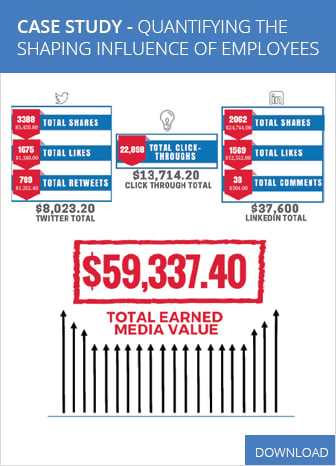Winners & Losers: A Sharing Economy Reality Check
The buzz that has echoed in startup boardrooms and the back rooms of venture capital firms has made its way to the pages of The New York Times: the hype of the sharing economy is over and businesses are being forced to face reality and the fundamentals. The sharing economy promised to offer convenience and luxury at bargain rates. Now it is collapsing under the weight of real-world economics. Those startups that can’t or won’t adjust are failing or being sold for scrap: WunWun, SideCar, FlyteNow and Good Eggs are but a few casualties of failed economics.
Behemoths like Uber or Amazon can operate based on bulging coffers or economies of scale. Much of the "sharing economy," however, is discovering that venture capital can prop them up for only so long. This latest round of frothy investment has been based on Internet and app-centric economics—a language that VCs understand, but which does not translate to real-world logistics. Now, these startups are facing a reconciliation which preserves what others have forgotten: real-world economics.
%20(1).jpg)
Software lipstick on a pig
For many in the tech bubble, there is a simple recipe for "disruption": Take one industry, add a dash of technology, a pinch of mobile app, avoid any pesky regulatory bodies that may bubble up as the mixture sets, and voila! Disruption.
Just take a look at some recent on-demand delivery startup failures and you'll find a similar thread. Each failed to reconcile real-world conditions with their hopes that technology and “app-ification” would overcome everything.
Not even two years ago now, a long-form series of articles in Re/Code put the on-demand delivery genre under a microscope, likening it to a similar phenomena in the late 1990s that was eventually a primary feature of the dotcom bubble bust. I mention the fact that this somewhat optimistic examination of the on-demand delivery sector was not even two years ago because it is a telling sign that many of the cited startups are no longer with us, have shrunk significantly, pivoted, or are slowly on their way out.
WunWun, for example, planned to disrupt everything by offering free delivery. The startup was sold in what was dubbed a "fire sale" to a company called Alfred, which offers a more reasonable weekly delivery of goods - for a fee. They succumbed to a fate that has befallen many a startup in recent years. Despite grandiose claims that anyone questioning free delivery was thinking too small, they simply couldn't reconcile the economics of their business model with that of a profitable and sustainable business.
Similarly, a startup called Good Eggs, which purported to deliver organic goods from local farms, shuttered in several markets in 2015 after realizing that its biggest mistake "was growing too quickly, to multiple cities, before fully figuring out the challenges of building an entirely new food supply chain." Why the failure? According to the article on its retraction from New York, Los Angeles and New Orleans, "the team hasn’t quite figured out how to make that model financially sustainable, at least not in multiple cities."
Another startup, Sidecar, took aim at delivery with crowd sourced drivers, and shuttered in early 2016 before announcing its sale to GM. According to the company's founder and CEO, Sidecar shut its doors because it was "unable to compete against Uber, a company that raised more capital than any other in history and is infamous for its anti-competitive behavior."
Another way of reading this is that, in the shipping and delivery sector, the realities of logistics and economies of scale play a major role in success that can't simply be disrupted by an app. The winners will have won by gaining critical mass in terms of eyeballs from digital and offline marketing combined with high delivery density, or alternatively, high revenue per stop. As Sidecar CEO Sunni Paul notes in his farewell blog post, the company "launched a series of firsts, continually reinventing the category" and was unable to compete nonetheless.
Will the next round of failures please start your engines?
Next in line for economic demolition are some of the on-demand delivery startups. We only need look as far as companies dealing with logistics management. Many VCs and entrepreneurs seem to have forgotten that logistics is the real-world management of moving goods and services from point A to point B, efficiently. By the end of 2016, a new batch of formerly promising on-demand delivery names will adorn the CBInsights Startup Post-Mortem.
Technology is changing logistics with Uber-like matching tools and real-time ordering systems. Many software ‘unicorn’ startups wanted to be delivery companies, and vice versa--and in 2016, the economy is separating the wheat from the chaff. Companies forget to treat logistics like a real business, and now they’re paying the price. Getting things from A to B involves some iron-clad laws of physics, geography, and time, which majorities of sharing economy startups, and their respective VCs, have largely ignored or simply don’t understand.
Physical product, online thinking
In the rush to monetize delivery in new ways, tech companies aren’t seeing transport logistics for what they are. The are only two ways to keep the business model scalable, cost-effective and productive: either have high revenue per stop with larger-than-parcel (LTP) deliveries as uShip does or have a high number of deliveries per on-road hour as FedEx, UPS, USPS, Amazon and some local couriers do. Most of the recent start ups have neither plus they charge an unrealistically low delivery cost. $5 seems to be the magic number, for now.
Amazon Prime has done a masterful job of using a careful recipe of marketing and logistics to create a disruptive user experience. Uber also has a serious shot at some level of disruption if they make it incremental to their core business, but probably not to the same degree as Amazon. Startups should not assume these models are easily replicable. Amazon has a well-established logistics infrastructure and Uber has logistics built into its core business of human transport.
It doesn’t make sense to build this type of business unless you can get the most revenue out of each route (or lane, in trucking parlance) - something that is not being done well by most of these on-demand delivery companies. Most startups have low per-stop revenue and low deliveries per on-road hour, and as a result, have negative gross profit margins. No amount of partnerships with retailers or promises to change consumer habits will change the down and dirty truth, which is that you can’t succeed at logistics by having better technology. You succeed at logistics by having better logistics.
And the survivors will be …
As venture capital starts to dry up, sharing economy startups that treat logistics as a willy nilly afterthought rather than a core tenet of business operation will quickly discover that either the cost of service will need to increase in order to remain in the black, or they will run out of capital. Companies should be looking at diversifying their service types, enhancing their supply side--in this case, transporters providing the service. At the same time the winners will design ways to make life easier for the demand side--in other words, shipping customers--through easier booking and pricing formats. Those are the companies that are going to make it, along with those where package delivery is incremental to their core business, such as UberRush or Amazon Prime.
My best guess is that only FedEx, UPS, UberRush, Amazon, uShip and others with revenue productivity will be left standing. It’s the same thing that happened with labor markets--early movers like UpWork, TaskRabbit and a handful of others remain--and music, now dominated by Spotify, Apple iTunes and Pandora. As the sharing shakeout continues, it is worth considering: how different will the sharing economy look in the next 5 years, and who will dominate? In the end, it’s not about sharing at all. It’s capitalism, and the best business models will win.
Edited by Stefania Viscusi











